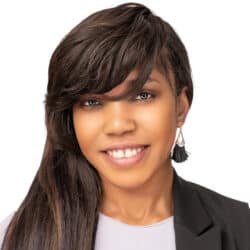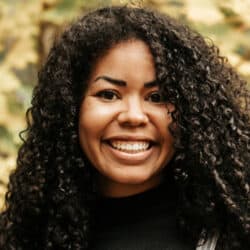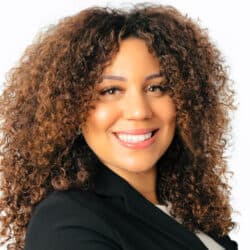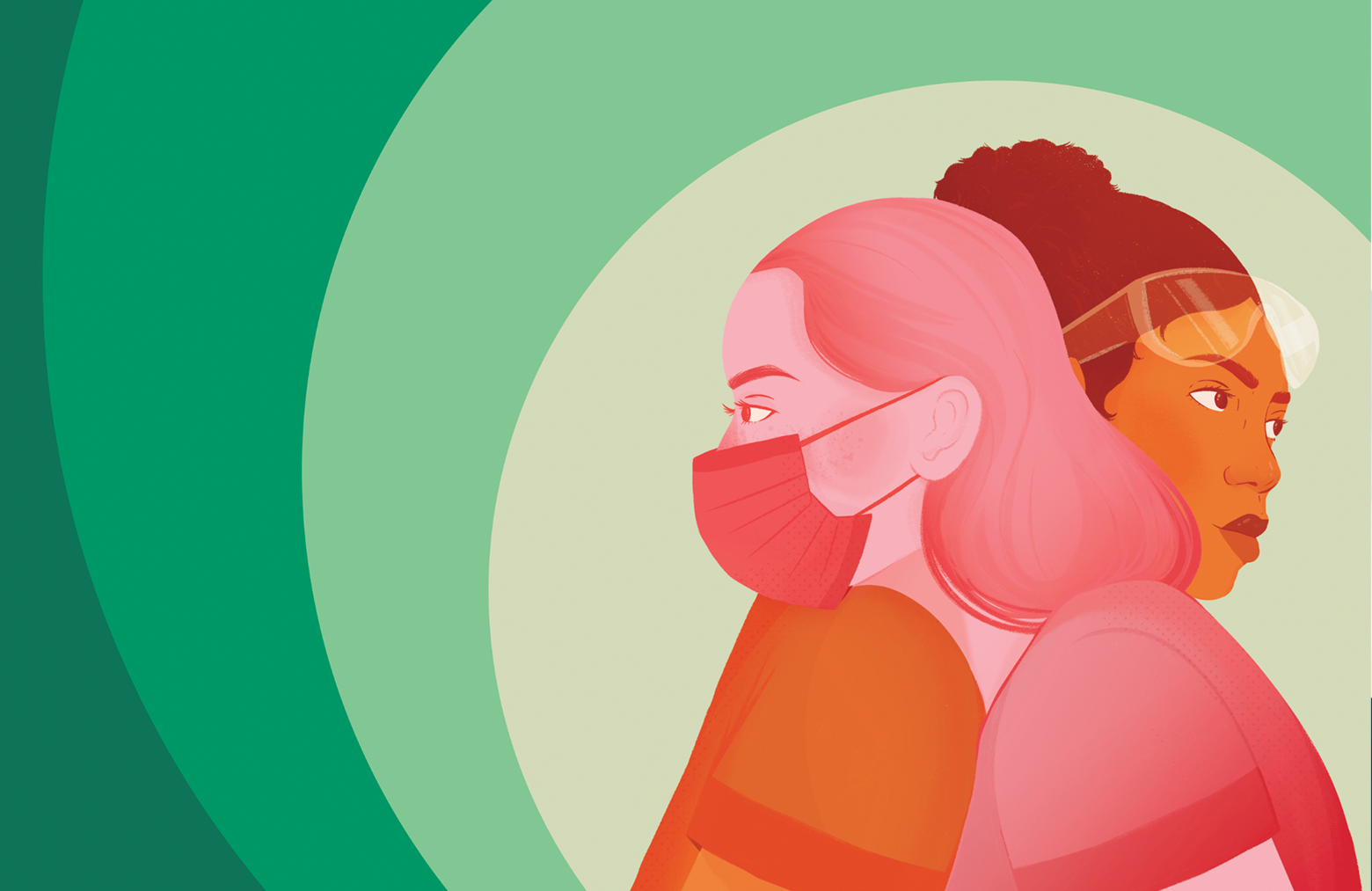The Philanthropist Journal is pleased to introduce the selected fellows who will be bringing you stories on work and working this fall and winter.
In April 2023, The Philanthropist Journal launched a fellowship dedicated to recognizing and sharing the storytelling and writing talent of young Black and Indigenous writers.* The fellowship is focused on the future of work and working and was made possible through funding and support from Surabhi Jain and the Workforce Funder Collaborative, a partnership of philanthropic-minded organizations working to strengthen workforce development.
We were overwhelmed by the outstanding submissions we received from across Canada. Thank you to everyone who helped spread the word about this opportunity and to everyone who applied. Special thanks to Gladys Ahovi, Thea Belanger, and Yvonne Rodney, who supported the outreach and selection process. This fellowship program is a new initiative for us – an unexpected outcome has been the opportunity to be introduced to a wide range of perspectives and writers, who we hope to continue to connect with in the future.
We are pleased to introduce you to the selected fellows. Stay tuned for their writing (and some podcasts) over the next six months.
Aiden Cyr

Aiden Cyr is a member of the Manitoba Métis Federation, with his ancestral roots in the Métis homeland along the Red River. He holds a BA from Concordia University, majoring in community, public affairs, and policy studies and political science. He is a Schwarzman Scholar and earned his master’s degree in global affairs from Tsinghua University. He is an international public speaker on Indigenous reconciliation, gender-based violence, and climate change.
Through the fellowship, Aiden will bring attention to such issues as the rapidly changing social contract between young workers and their employers and how public-value-creating organizations can improve social outcomes by using innovative funding mechanisms.
More on Aiden’s Schwarzman scholarship here.
Stella Igweamaka

Originally from Nigeria, Stella Igweamaka is an award-winning market and social researcher. She is passionate about using research and storytelling for impactful change and was recently featured on CBC News for her work with Black Canadian Women in Action (BCW) on adultification bias of Black girls in Canada. Stella aims to enhance her writing skills through the fellowship and is exploring topics like empowering the hybrid workforce, supplier diversity, workplace inclusivity, and the impact of technological innovations on non-profits. She holds an MBA from the University of Lagos, Nigeria, and currently works at Servus Credit Union, in Edmonton, as a senior execution consultant.
Through this fellowship, Stella is interested in exploring how to build a connected workforce and foster a sense of belonging in a hybrid era.
Stella’s research on adultification bias and Black girls was covered by the CBC here.
Amina Mohamed

Amina Mohamed is a writer and researcher interested in the intersection of culture, technology, and cities. With a particular research interest in museums and other cultural institutions, she writes about the impact of digitization and digital culture on our understanding of art, culture, and community.
Currently, Amina works in education advocacy at the National Council of Canadian Muslims (NCCM) and also sits on the Toronto Public Library Board and the steering committee for the Somali Centre for Culture and Recreation. Prior to her work at NCCM, she was head of programming and communication at Urban Impact, an urban tech agency in Berlin. She holds a master’s in new media from the University of Amsterdam.
At The Philanthropist Journal, Amina is researching the evolving role and impact of AI on non-profit work, as well as the personal and professional impact of underemployment on workers in the non-profit sector.
Read Amina’s Toronto Star piece on closing the gap in Black-led recreational spaces in Toronto.
Lydia Phillip

Lydia Phillip is passionate about engaging in and contributing to work that is a catalyst for transformative change. A gifted storyteller, she is intentional about using her voice to inspire new ways of being together, to dismantle oppressive colonial systems, and to create a just future. She has been recognized nationally for her leadership, anti-racist initiatives, and work toward gender equality. A published writer and researcher, she has found joy in her current work with Impact Organizations of Nova Scotia (IONS) through meaningful communications, experimentation, and community-building. Most recently, her writing on resisting urgency culture and prioritizing rest has sparked conversation throughout the country. At heart, Lydia is a creative and caring disrupter, an advocate for centring people in the work always, and a big believer in the power of reimagining. She has the privilege of living near the ocean and many lakes in Mi'kma'ki (Nova Scotia), the unceded territory of the Mi'kmaw People.
Lydia is interested in exploring neurodiversity in the workplace and the supports, education, and practices that help create neuro-affirming organizations.
Lydia was recently featured in this Globe and Mail piece: “Why ‘Urgency Culture’ in the Workplace Is Failing Everyone.”
Kayla Webber

Kayla Webber is a doctoral candidate in the Department of Social Justice Education at the Ontario Institute for Studies in Education, University of Toronto, specializing in women’s and gender studies. Her research interests are housing precarity, Black and Indigenous communities, models of wellness, anti-Black racism, anti-Indigenous racism, Black affirmation, sexualized violence, and transformative justice through the lens of storytelling and hood feminism (an intersectional approach based on the premise that true equality and inclusivity means seeking to lift all women, including those of colour). Webber’s ancestors and bloodlines are from Trinidad, Grenada, and Nova Scotia, but she was born and raised in the Eglinton West Little Jamaica community in Tkaronto. Webber is an 1834 Fellow alumnus, co-chair of the Indigenous Education Network, co-founder of Auntie’s Place, and vice-chair of the For Youth Initiative (FYI), a non-profit that helps Black, racialized, and newcomer young people navigate the unique barriers and challenges they face as they transition to adulthood.
Kayla will use the writing fellowship as an opportunity to collaborate, co-create, and co-vision a Black and Indigenous feminist future rooted in community.
Kayla co-wrote this piece in 2022: “Hood-in-g the Ivory Tower: Centring Black, Indigenous, and Afro-Indigenous Feminist Solidarities.”
* National data released in December 2022 by the Canadian Association of Journalists on the racial and gender breakdown of newsroom employees shows that 78% of journalists identify as white, 4.6% identify as Indigenous, and 17.5% identify as a visible minority. The report says that eight in 10 newsrooms had no Black or Indigenous journalists on staff.


